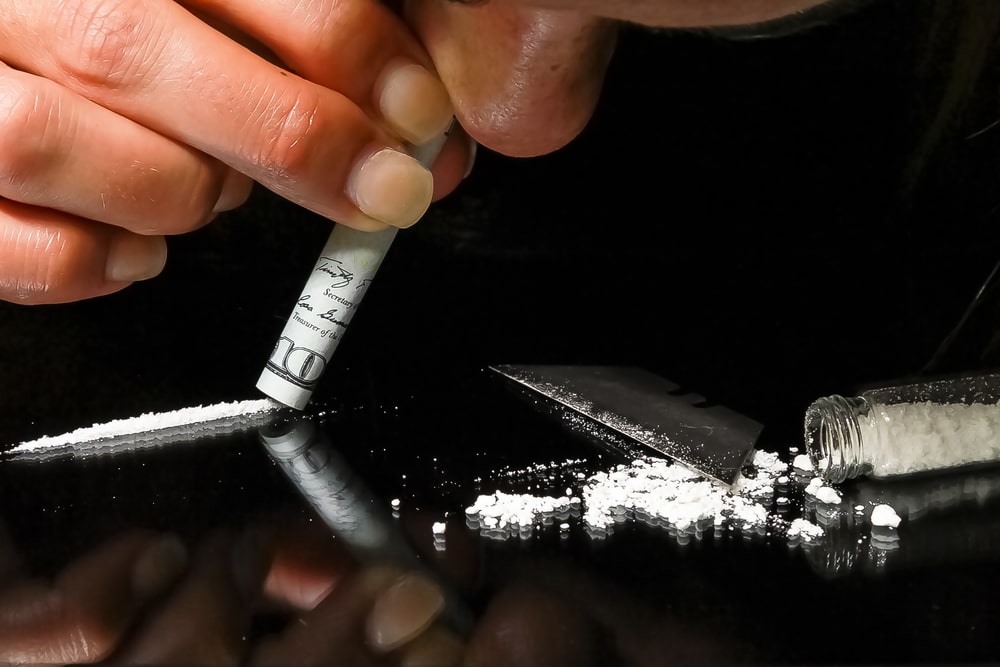Snowblind
Snowblind
Written by Dennis DeYoung, James Young, and Tommy Shaw
Lead Vocals by James Young and Tommy Shaw
Mirror, mirror on the wall
The face you've shown me scares me so
I thought that I could call your bluff
But now the lines are clear enough
Life's not pretty even though
I've tried so hard to make it so
Mornings are such cold distress
How did I ever get into this mess
I'm snowblind, can't live without you
So fine I just can't get away
Now I'm snowblind, snowblind, snowblind
Harmless and innocent you devil in white
You stole my will without a fight
You filled me with confidence, but you blinded my eyes
You tricked me with visions of Paradise
Now I realize I'm
Snowblind, can't live without you
So fine I just can't get away
Now I'm snowblind, snowblind, snowblind
Mirror, mirror I confess
I can't escape this emptiness
No more reason to pretend
Here comes that same old feeling again
Snowblind, can't live without you
So fine I just can't get away
Won't you throw me a lifeline
I'm going down for the third time
I'm snowblind, and I can't get away
Interpretation
Snowblind is a song about cocaine addiction (one of the street names for cocaine is "snow" because it is a fine white powder). It is sometimes mistaken to be a love song due the lines from the chorus, "...can't live without you/'Cause you're so fine, I can't get away." And, of course, it is also not about being caught in a blizzard ;-).
The dark parts that JY sings are told from the perspective of the cocaine addict when coming down from the drug and feeling empty. The upbeat parts that Tommy sings are told from the perspective of the same cocaine addict when high on the drug and feeling artificially euphoric. The song demonstrates the cycle of highs and lows that the addict experiences, becoming more and more dependent on the drug to feel anything good at all.
The song starts with the line "Mirror mirror on the wall/The face you show me scares me so" as the addict wakes up in the morning after a night of using cocaine feeling afraid of what his addiction is doing to him and seeing the wear of abuse in his own face. "I thought that I could call your bluff/But now the lines are clear enough" echoes the feeling that a first-time user of cocaine has that he won't get addicted like others have, only to discover that he too has become addicted. He continues with "Life's not pretty even though/I try so hard to make it so," highlighting the sad circumstances of a person's life that lead them to try an escape like cocaine. The realization of "Mornings are such cold distress/How did I ever get into this mess" reiterates the empty feeling of the morning after a cocaine binge and the feeling of powerlessness to break the cycle.
"Harmless and innocent you devil in white/You stole my will without a fight" again echoes the dangerous illusion of harmlessness of the fine white powder to a first-time user that is not recognized as false until the user is already hopelessly addicted. The euphoric feeling of invincibility and superiority that cocaine invokes in a user is apparent in the words, "You filled me with confidence" while the truth of the drug's trickery is revealed when the verse continues "But you blinded my eyes/You tricked me with visions of Paradise/Now I realize that I'm snowblind..." again recognized too late for the addict to break the spell.
Again down from his high, the addict laments his predicament and the empty feeling left to him as he stares into the mirror on which the lines of cocaine are already laid out for another snort, "Mirror mirror I confess/I can't escape this emptiness." Unable to stand the emptiness he is experiencing ("No more reasons to pretend"), he gives in and starts the cycle over again with another hit of cocaine, "Here comes that same old feeling again."
The song ends with a note of hope, however, with the lines "Won't you throw me a lifeline/I'm going down for the third time," recognizing that only with outside help can the addict break free of the terrible cycle.
There are clever double-meanings buried in some of the lyrics. For example, "But now the lines are clear enough" are appropriate to the context in the song, but they also refer to the cocaine carefully arranged into lines for convenient snorting by the addict as well as to the reflective surface (usually a mirror) on which the lines are arranged. Another example is "'Cause you're so fine, I can't get away." Again, the line is appropriate to its context, but it also refers to the quality and purity of the cocaine and to the fine texture of the substance.
In 1981, the state legislature of California accused Styx accused of backmasking satanic messages in Snowblind. They contended that the line "I try so hard to make it so" from the introductory verse sung by JY sounded like "Oh Satan move through our voices" when played backwards. Styx responded to these false allegations by releasing their next album, Kilroy Was Here, as a concept album and accompanying movie about a dark future in which Rock & Roll music is banned by a society where censorship has been allowed to restrict free expression.


Fantastic Song and a great interpretation
ReplyDelete